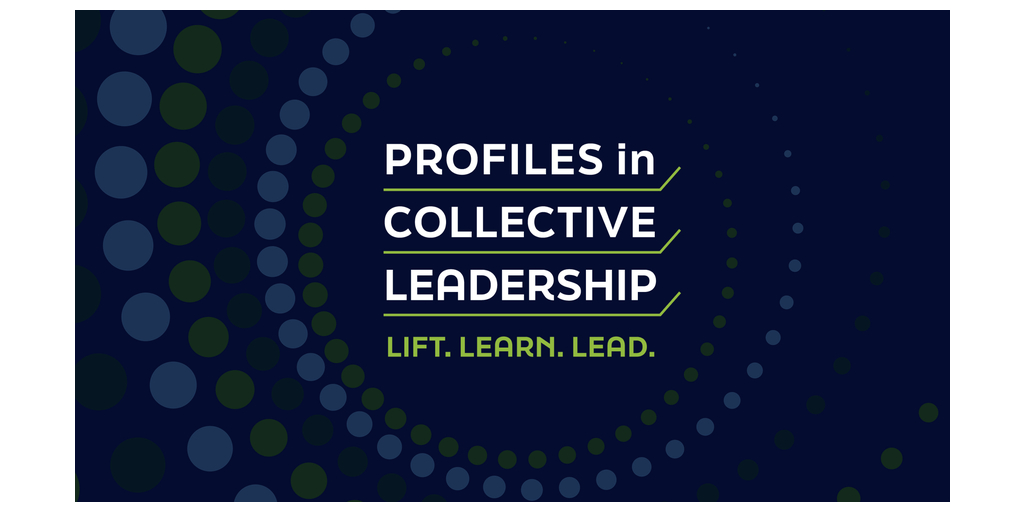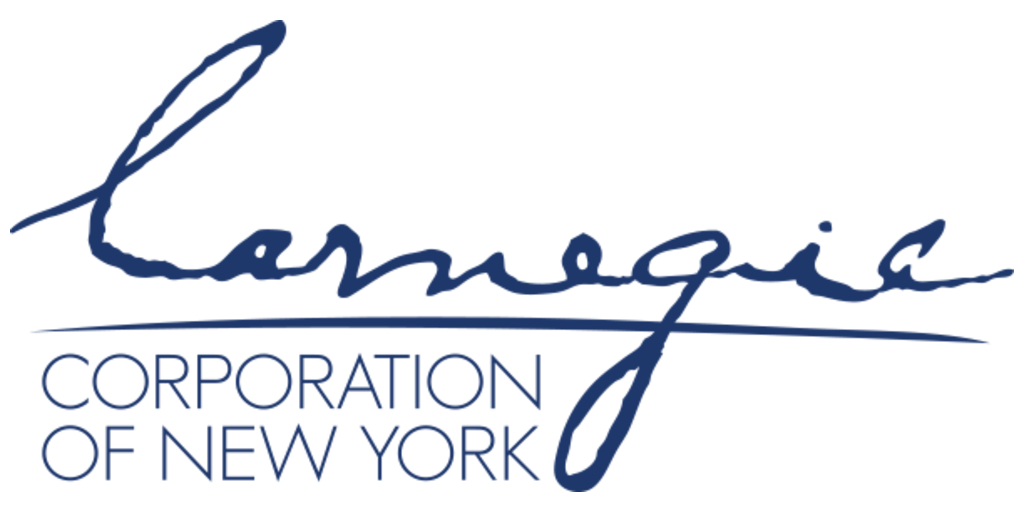Carnegie Corporation Announces Winners of Education and Workforce Development Grants
A new philanthropic initiative supports local leaders collaborating across public and private sectors to create career pathways for young people, strengthen civic engagement, and reduce political polarization
NEW YORK–(BUSINESS WIRE)–Today, Carnegie Corporation of New York announced the winners of a new initiative to support outstanding local partnerships that educate youth, bolster the workforce, and demonstrate the power of working together.
Profiles in Collective Leadership provides $200,000 grants for nonpartisan collaborations that serve as education and economic bridges in a range of communities across the country. The collaboratives draw on the strengths of local government, education, nonprofit, business, and health care professionals to create career opportunities for young people and encourage civic participation. The 10 recognized partnerships in 8 states will act as exemplars, sharing what they have learned with each other and with the public.
By funding these collaborations in urban, suburban, and rural areas, the Corporation seeks to reduce political polarization and support civic engagement, community cohesion, and trust in public institutions. The Corporation aims to help young people from all backgrounds move from the classroom to meaningful careers, spurring the socioeconomic mobility necessary to create a thriving economy and sustain a healthy democracy.
“At Carnegie Corporation of New York, we are gravely concerned by the growing polarization of American politics and society,” said Dame Louise Richardson, president of the philanthropic foundation. “Through our Profiles initiative, we wish to recognize the work of local educational collectives who act creatively together across public and private sectors to create career opportunities for young people. Congratulations to our 10 exceptional winners whose contributions to our society benefit all of us.”
The Corporation, in partnership with the education nonprofit Transcend, identified candidates through a competitive national process. The winners were selected by a panel of jurors comprised of a broad range of leaders in business, higher education, and philanthropy, including Corporation board member Kurt L. Schmoke, president of the University of Baltimore and the former mayor of Baltimore.
“We launched Profiles based on our belief that communities across the country are working to create opportunities for economic and social mobility as well as civic engagement irrespective of red, blue, or purple politics — and we want to listen and learn from them,” said LaVerne Evans Srinivasan, vice president of the Corporation’s National Program and program director of Education. “The 10 winners are leading examples of this type of collaborative work on the local level, and our hope is that by spotlighting and funding their efforts, we can ultimately influence the field to work in new and collective ways that also mitigate the impact of polarization.”
“Transcend is thrilled to partner with Carnegie Corporation of New York to learn from and with innovative leaders who are coming together across different sectors in their communities to create experiences that truly enable young people to thrive,” said Jeff Wetzler, co-chief executive officer of Transcend. “Designing impactful learning environments requires putting learners at the center and breaking down any barriers that stand in the way of all young people having the opportunities they deserve. We hope that the community of practice will create an environment that only enhances their capacity and amplifies their impact.”
The winners of the 2024 Profiles in Collective Leadership award are:
- The Anaheim Collaborative: Local school districts, a state university, businesses, nonprofits, and the city government of Anaheim, California, are promoting new classroom practices and artificial intelligence assessments to consider the following skills: communication, collaboration, creativity, critical thinking, and character/compassion. Students complete an internship as a Capstone Project, and teachers receive training to reimagine how to measure students’ readiness and talents.
- Baltimore’s Promise/Grads2Careers: A local school district, the mayor’s office, and a nonprofit in Baltimore, Maryland, are reducing poverty and disengagement among local youths by funding occupational skills training to put high school graduates on a path to immediate career-track job opportunities. Students receive wraparound support services, including transportation assistance, mental health and wellness services, and an academic remediation program.
- BlueSky Tennessee Institute: A health care company, a state university, and a local school district are recruiting future computer scientists in an area of Chattanooga, Tennessee, with low rates of college enrollment. Students graduate with an accelerated bachelor’s degree in computing in 27 months and receive a job offer for a competitive position at BlueCross BlueShield Tennessee.
- CareerWise Elkhart County: A local nonprofit, educators, businesses, and community leaders in Elkhart County, Indiana, provide apprenticeships to high school students from all seven school districts in the county, allowing them to earn wages, college credit, and industry certifications.
- Collegiate Edu-Nation (CEN) Rural HOPE: A nonprofit works with local school districts, universities, and community and business leaders to provide high-poverty, low-achieving school districts in rural Texas with access to college- and career-ready instruction that leads to degrees and certifications with little to no student debt. In Roscoe, Texas, where CEN began, up to 90 percent of high school seniors have graduated with associate degrees and certifications. The program is expanding to Illinois and West Virginia.
- Future Focused Education/X3: A nonprofit works with multiple health care partners to offer hands-on training and mentorship for minority, rural, and high-poverty students seeking opportunities in high-demand health care professions in Albuquerque, New Mexico. There are now more than 100 health care internship placements annually. At least 35 percent of interns receive employment or additional work-based learning directly out of the program.
- IU Health Fellowship with Indianapolis Public Schools: A partnership between Indiana University Health, Indianapolis Public Schools, local higher education institutions, and community leaders aims to increase the number of skilled health care professionals in Indianapolis, Indiana, by offering a specialized, three-year high school curriculum that prepares students to enter the field upon graduation or to pursue further education in the field.
- Latine College & Career Access Network: A partnership of five community organizations in Boston, Massachusetts, focuses on the lack of college and career pathways for local Latine youth and youth of color. The program equips students with personalized tools and skills to support their success in school, higher education, and the workforce. Eighty to eighty-five percent of participants are the first in their families to attend college.
- OneFuture Coachella Valley: A nonprofit works with Coachella Valley’s three K–12 school districts, local colleges, nonprofits, city government, and businesses in Riverside County, California, to address low-educational attainment and career readiness, leading to an 18 percent increase in college enrollment and 3,000 students from low-income communities receiving $17 million in scholarships.
- West AlabamaWorks!: A network started by the Chamber of Commerce of West Alabama and a workforce development council work with higher education institutions, business partners, and 12 school districts to serve nine primarily rural counties in a region anchored by Tuscaloosa, Alabama. Students are prepared for careers in local industries, such as manufacturing, construction, automotive, and other professional services. With a particular focus on justice-involved individuals, it has matched more than 1,550 registered individuals and 44 participating companies.
Learn more about the Profiles in Collective Leadership initiative at carnegie.org/CollectiveLeadership.
About Carnegie Corporation of New York
Carnegie Corporation of New York was established by Andrew Carnegie in 1911 to promote the advancement and diffusion of knowledge and understanding. In keeping with this mandate, the Corporation’s work focuses on the issues that Carnegie considered of paramount importance: education, international peace, and a strong democracy. As a leading philanthropic funder of nonprofit education programs, the Corporation supports organizations working to ensure that all students are prepared with the knowledge, skills, and motivation they need to fully participate in a democracy and to thrive in the global economy. @CarnegieCorp
Contacts
Celeste Ford | Carnegie Corporation of New York | Chief Communications Officer
Email: CFC@carnegie.org

